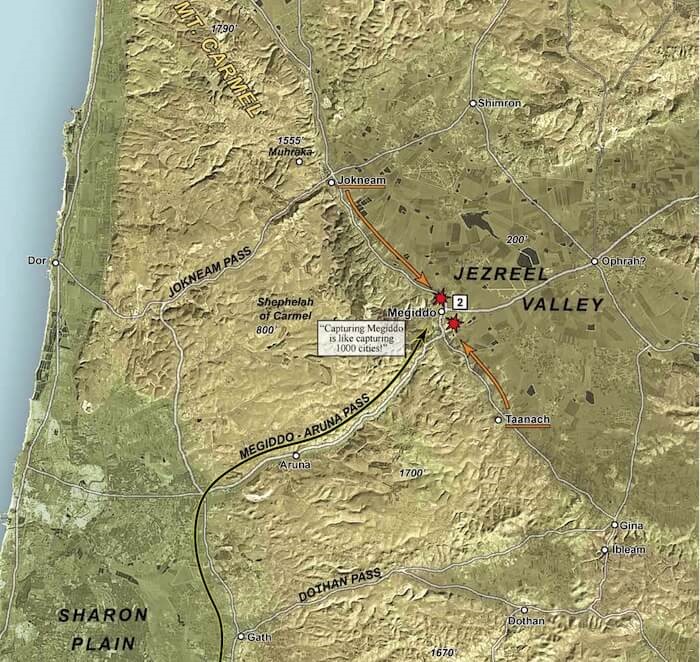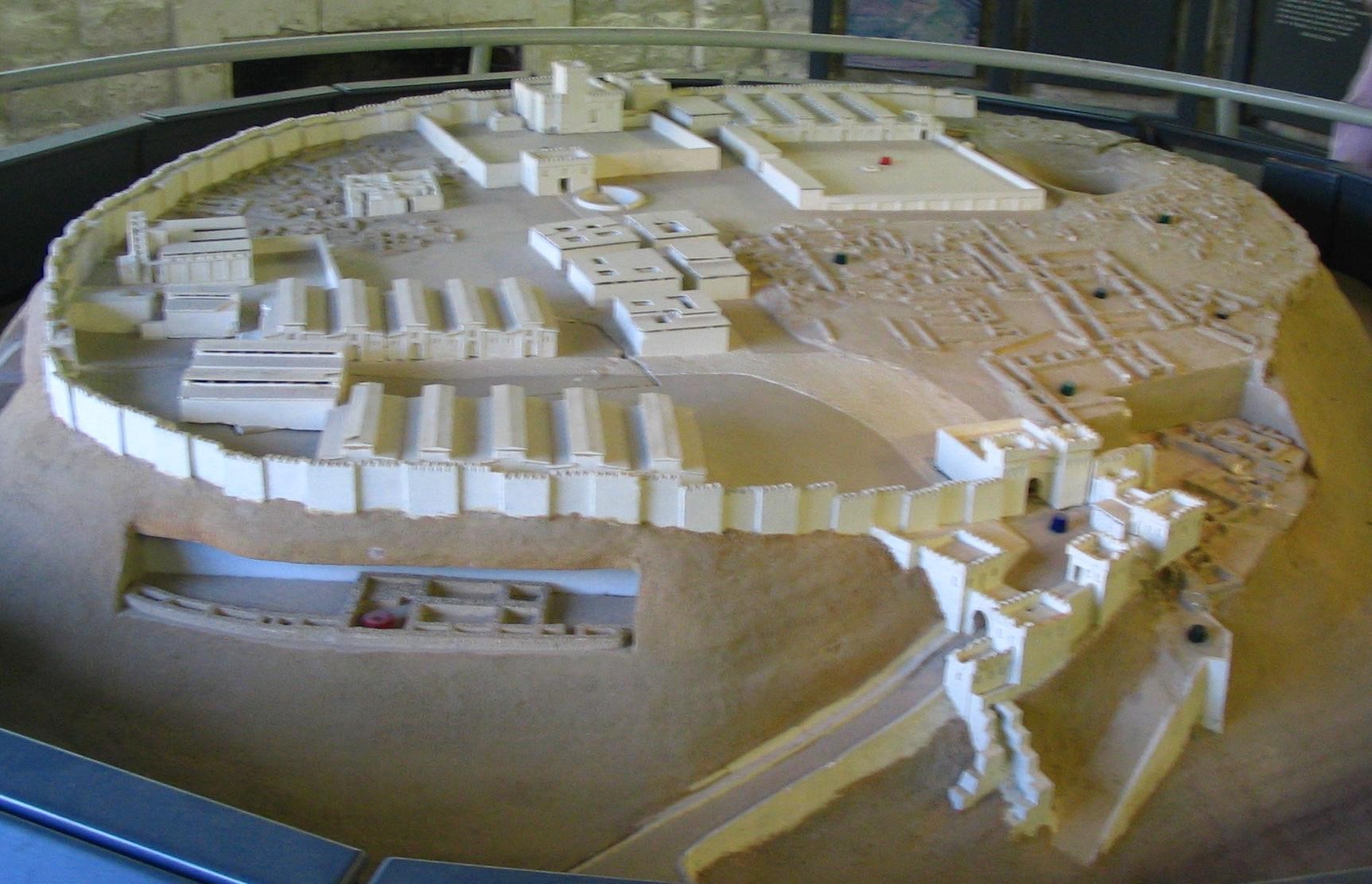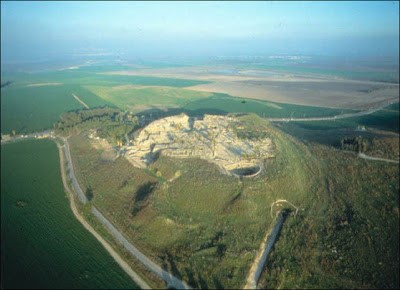Bible Studies
The Battle Rages
Wayne T. Galloway
www.fortloganchurchofchrist.com
The Battle Rages
Watch the video Ep. 8 The Holy Land: Megiddo Built for War
https://www.youtube.com/watch?v=VcuX0jiso04&list=PLPOUA7GLxXIGkhikntfiT4ida1lKbSNNB&index=9&t=0s
Opening:
1. War. It is not pleasant. When we think of war we think of death and destruction, loss of life, pain and grief. If peace means life and good things war is its opposite.
2. Christians are in a spiritual war of sorts. Paul portrayed the people of God as soldiers. This is what he said.
“Be strong in the Lord and in the strength of His might. Put on the full armor of God, so that you will be able to stand firm against the schemes of the devil. For our struggle is not against flesh and blood, but against the rulers, against the powers, against the world forces of this darkness, against the spiritual forces of wickedness in the heavenly places.
Therefore, take up the full armor of God, so that you will be able to resist in the evil day, and having done everything, to stand firm. Stand firm therefore, having girded up your loins with truth, and having put on the breastplate of righteousness, and having shod your feet with the preparation of the gospel of peace; in addition to all taking up the shield of faith with which you will be able to extinguish all the flaming arrows of the evil one. And take the helmet of salvation, and the sword of the Spirit, which is the word of God.
With all prayer and petition pray at all times in the Spirit, and with this in view, be on the alert with perseverance and petition for all the saints” (Eph. 6:10-18).
3. Our study today takes us to Megiddo, a place known for battle after battle, which in my judgment, comes to represent the great spiritual battle that we are involved in.
Into the Text:
1. Megiddo was one of the most strategic points in the Bible land. It commanded the entrance to the Wadi Arah, which served in antiquity as the main pass on the Via Maris between the Sharon Plain and the Valley of Jezreel. Near the foot of Megiddo that route branches out in three main directions: 1) NW past Jokneam to the Plain of Acco and the Phoenician coast; 2) NE via Anaharath to Chinnereth, Hazor and Damascus; 3) eastward to Beth-shean, the Trans-Jordon and Damascus.

2. Megiddo was perched above the most important land route in the ancient Near East. The city dominated international traffic for over 6,000 years—from ca. 7,000 B.C. through biblical times.



3. History’s first recorded battle was here between the Egyptian king Thutmose III and the Canaanites in the 15th century B.C. Joshua defeated the king of Megiddo about 70 years later (Josh. 12:21; 17:11). The tribe of Manasseh did not dispossess the Canaanites from Megiddo (Judges 1:27).
4. It would appear that Megiddo became an Israelite city during the wars of David when he wrenched it from the Canaanites and the Philistines. Solomon fortified the city during his empire and built a gate that can still be seen today (1 Kings 9:15).
Gates into city of Megiddo photo W. Galloway |

5. Pharaoh Shishak sacked the city in 923 B.C. and the Israelite kings Omri or Ahab rebuilt on its ruins. About 200 years later, the Assyrians took the city, and later still, King Josiah of Judah was killed there after facing off against Pharaoh Neco (2 Kings 23:29; 2 Chron. 35:22).
6. Rev. 16:16 speaks of a battle at “Har-megedon” meaning “hill of Megiddo.” Note this summary of biblical battles fought in this area.
a. Deborah and Barak against Jabin and Sisera of the Canaanites; a decisive
victory was given Israel by God (Judges 4, 5).
b. It was in this valley of Jezreel, “west of the hill of Moreh,” that Gideon’s 300
defeated the Midianites, another victory determined by God (Judges 7:1).
c. Saul and Jonathan were slain in the eastern extremity of the plain (1 Sam.
31:1-6).
d. Ahaziah, king of Judah, in league with Joram of Israel, died in Megiddo, slain at
the command of Jehu (2 Kings 9:27).
e. King Josiah was slain in the valley of Megiddo where he fought against
Pharaoh Neco (2 Kings 23:29f; 2 Chron. 35:22).
7. Some believe that Rev. 16:16 is referring to a physical battle that will occur at some day in the future in the Jezreel Valley. Others take it to refer to a great decisive spiritual battle between the army of Satan and the forces of God. Hailey states, “This battle was fought and won by the Lord in the complete defeat of the Roman Empire and paganism behind which Rome threw its total power” (Revelation Introduction and Commentary, p. 336).
8. I like what the old man said who when found reading Revelation was asked, “Do you understand what you are reading?” His response, “Yes, I think I do. We win!” Yes, the people of God win. We are engaged in a spiritual battle against the schemes of the devil and the world forces of this darkness. We need to be strong in the strength of His might, putting on the full armor of God, having girded our loins with truth, having put on the breastplate of righteousness, shod our feet with the gospel of peace and having taken up the shield of faith, and the helmet of salvation and the sword of the Spirit, which is the word of God, we ought to pray and be on the alert. The war is not easy, but the victory is sure!!
Application:
1. How does reading about the Lord’s great power affect your actions? Your hope? Your faith?
2. Do you really believe that we are in a spiritual battle? Do you really believe that God is the power upon whom we must depend? Explain.
3. How does knowing that, “We win!” help you to deal with the spiritual battles that you face?







